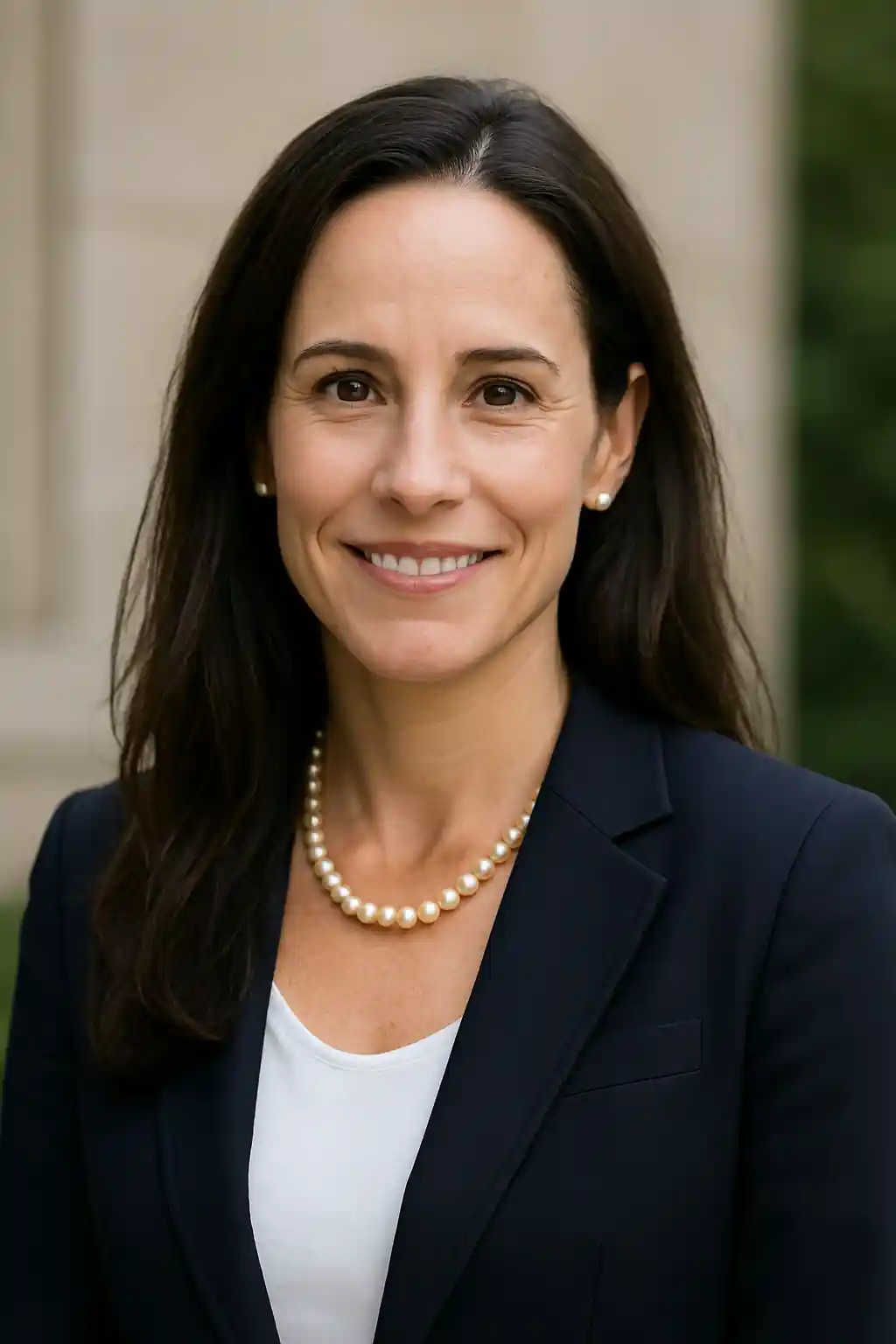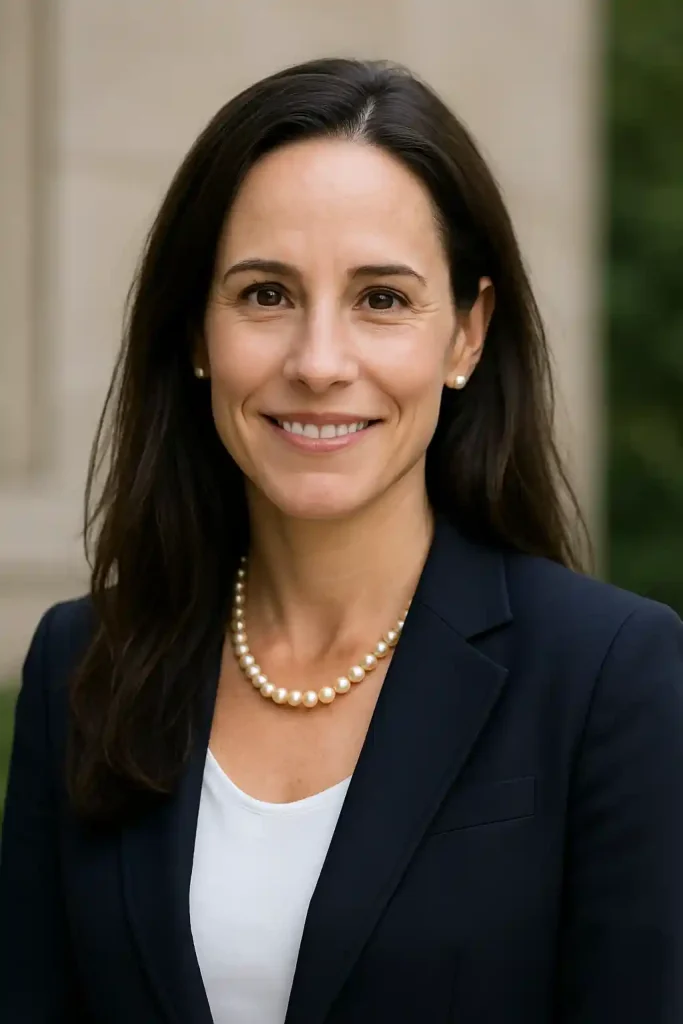Ashley Biden: Championing Equity, Mental Health & Community from the First Daughter’s Platform

Introduction: The Journey of Ashley Biden
Table of Contents
The name “Biden” resonates globally in the context of American politics. Yet, within that prominent family, Ashley Blazer Biden has carved a distinct path defined not by political ambition, but by an unwavering commitment to social justice, mental health advocacy, and community empowerment. As the youngest child of President Joe Biden and Dr. Jill Biden, Ashley has navigated the intense glare of the public eye while steadfastly dedicating her life to service, often away from the partisan fray. This comprehensive profile delves into her life, career, values, and the significant impact she strives to make, focusing on her work, her advocacy, and her unique perspective shaped by family, loss, and a deep-seated desire to uplift others.
I. Roots & Resilience: Formative Years in the Biden Family
Ashley Blazer Biden was born on June 8, 1981, in Wilmington, Delaware. Her arrival came amidst profound family tragedy – her mother, Neilia Biden, and infant sister, Naomi, had been killed in a car accident just nine years prior. Ashley was the first child of Joe Biden and his second wife, Jill Tracy Jacobs Biden, bringing renewed joy and hope to a family marked by grief.
- Growing Up Biden: Ashley’s childhood was immersed in the realities of public service. Her father was a U.S. Senator for Delaware throughout her formative years. She witnessed firsthand the demands of the office, the importance of constituent service, and the sacrifices involved. Her mother, an educator, instilled values of learning, compassion, and resilience.
- Family Anchors: Ashley shared a particularly close bond with her older brothers, Beau and Hunter Biden. Beau, in particular, was a protective and admired figure. The family’s unity, especially in the face of Beau’s tragic death from brain cancer in 2015, became a defining characteristic and a source of immense personal strength for Ashley.
- Shaping Values: The Biden family ethos – emphasizing empathy, perseverance, fighting for the “little guy,” and the importance of family – deeply influenced Ashley. Witnessing her father’s work on issues like the Violence Against Women Act and his personal struggles with loss shaped her understanding of trauma, justice, and the need for systemic support.

II. Forging Her Own Path: Education & Early Career Dedication
Determined to build her identity beyond her family name, Ashley pursued an education focused on social impact:
- Academic Foundation:
- Tulane University: Earned a Bachelor of Arts degree in Cultural Anthropology. This field provided a lens to understand human societies, cultures, and systemic inequalities.
- University of Pennsylvania: Earned a Master of Social Work (MSW) and a Master of Science in Social Policy. This dual degree equipped her with the practical skills and policy understanding crucial for addressing complex social problems. Her thesis reportedly focused on the criminal justice system’s impact on individuals and families.
- Grounding in Social Work: True to her academic training, Ashley embarked on a career directly serving vulnerable populations:
- Delaware Department of Services for Children, Youth, and Their Families (DSCYF): Worked as a clinical social worker, directly engaging with at-risk youth and families involved with the child welfare and juvenile justice systems. This frontline experience provided an unvarnished view of systemic failures and the resilience of individuals facing adversity.
- West End Neighborhood House, Wilmington: Served as the Associate Executive Director. This role involved managing programs, advocating for resources, and working directly within a community to address needs like youth development, family support, and workforce readiness. This solidified her commitment to community-based solutions.
III. Leading Change: The Delaware Center for Justice & Criminal Justice Reform
Ashley’s passion for systemic change led her to a pivotal leadership role:
- Executive Director, Delaware Center for Justice (DCJ): She led this non-profit organization dedicated to criminal justice reform in Delaware. Her tenure (approximately 2014-2019) was marked by:
- Policy Advocacy: Pushing for legislative changes focused on rehabilitation, reducing recidivism, and addressing racial disparities within the justice system.
- Program Development: Overseeing and expanding programs providing critical services to individuals impacted by the justice system – reentry support, victim services, youth diversion programs, and policy research.
- Building Coalitions: Working collaboratively with legal professionals, community leaders, law enforcement, and policymakers to foster dialogue and drive evidence-based reforms.
- Focus on Root Causes: Emphasizing the connection between poverty, lack of opportunity, mental health, substance abuse, and incarceration, advocating for upstream interventions.
Her work at DCJ demonstrated her ability to translate frontline experience into strategic leadership for systemic reform, focusing on dignity, second chances, and community safety through equity.
IV. Fashion with a Mission: The Livelihood Collection
In a unique venture blending commerce and community impact, Ashley co-founded the Livelihood Collection in 2017.
- The Concept: An ethically produced, premium apparel line (starting with sweatshirts) featuring a circular arrow logo symbolizing community, progress, and interconnectedness.
- The Mission: Profits were directed towards funding community development initiatives in underserved areas, initially focused on Wilmington, Delaware. The aim was to invest in local economies, job training, and neighborhood revitalization.
- The Message: “Livelihood” embodied dignity, economic empowerment, and the belief that everyone deserves the opportunity to build a stable, fulfilling life. It was a tangible expression of her commitment to economic justice.
- The Evolution: While the direct-to-consumer line eventually wound down operations, it stands as a testament to Ashley’s innovative approach to leveraging different platforms for social good and raising awareness about economic inequities.
V. A Core Passion: Championing Mental Health Advocacy
Perhaps one of Ashley’s most profound and personal areas of advocacy is mental health. This focus stems from multiple sources:
- Family Experience: The Biden family has been profoundly impacted by mental health challenges and grief – the tragic deaths of Neilia and Naomi, Beau’s battle with cancer and its aftermath, and Hunter Biden’s public struggles with addiction. Ashley has spoken about the toll of these experiences and the importance of seeking help.
- Professional Lens: Her social work background provided deep insight into the prevalence of trauma, addiction, and untreated mental illness, particularly among marginalized communities she served. She saw how mental health intersects with poverty, homelessness, and involvement in the justice system.
- Breaking Stigma: Ashley uses her platform to speak openly about mental health, normalizing conversations about anxiety, depression, grief, and the need for support. She emphasizes that mental health is integral to overall well-being, just like physical health.
- Advocacy Focus:
- Increasing Access: Championing policies and funding to expand access to affordable, quality mental health care and substance use treatment for all Americans, especially children and underserved populations.
- Integrating Care: Advocating for better integration of mental health services into primary care settings and community centers.
- Supporting Caregivers: Highlighting the needs and challenges of family members supporting loved ones with mental illness or addiction.
- Trauma-Informed Approaches: Promoting understanding of trauma and its widespread impact, advocating for trauma-informed practices in schools, workplaces, and service agencies.
Her voice adds significant weight and empathy to the national conversation on mental health, grounded in both professional expertise and personal understanding.
VI. Life as First Daughter: A Unique Platform & Continued Focus
With her father’s election as President in 2020, Ashley Biden assumed the role of First Daughter. She has navigated this highly visible position with characteristic focus:
- Prioritizing Core Missions: She has largely eschewed the traditional “First Lady’s project” model. Instead, she continues her advocacy work, often amplifying issues like mental health, social work, and economic equity through the platform the White House provides, but not necessarily as an official administration representative.
- Selective Public Appearances: She participates in events aligned with her passions – attending the White House signing of the American Rescue Plan (which included significant mental health funding), speaking at mental health forums, supporting military families, and championing social workers. Her appearances often focus on substance over ceremony.
- Maintaining Privacy: Like many adult children of presidents, Ashley fiercely guards her private life. She married Howard Krein, a plastic surgeon and professor, in 2012. Details about their personal life are kept largely out of the public eye. She maintains a residence in Philadelphia.
- Advocacy Through Association: Her presence alone brings attention to the causes she cares about. Her background in social work informs her perspective and lends authenticity when she does speak on issues like community investment or supporting families.
VII. Public Perception: Authenticity, Privacy, and Purpose
Ashley Biden is often described in media portrayals and by those who know her as:
- Authentic: She comes across as genuine, grounded, and unaffected by the trappings of fame or political power. Her social work background seems to keep her connected to everyday realities.
- Compassionate: Her career choices and advocacy speak to a deep well of empathy and a desire to alleviate suffering and injustice.
- Resilient: Having endured profound family losses in the public eye, she demonstrates quiet strength and perseverance.
- Private: She consciously avoids the spotlight when it doesn’t serve her core mission of advocacy. She rarely gives extensive personal interviews.
- Purpose-Driven: Her life choices consistently reflect a commitment to service and making a tangible difference, particularly for vulnerable populations.
She stands in contrast to the sometimes-polarizing nature of political life, embodying a quieter, more pragmatic form of influence focused on systemic change and human dignity.
VIII. Core Values & Guiding Principles
Ashley Biden’s life and work are underpinned by several key values:
- Equity & Justice: A fundamental belief in fairness and the urgent need to dismantle systemic barriers that prevent individuals and communities from thriving. This drives her work in criminal justice reform and economic development.
- Compassion & Empathy: The bedrock of her social work background and her approach to mental health advocacy. Understanding and responding to human suffering is central.
- Community: A strong belief in the power of local communities to identify solutions and the importance of investing in their strength and resilience (evident in Livelihood and her local work).
- Dignity: Respecting the inherent worth of every individual, regardless of circumstance, and advocating for systems that uphold that dignity.
- Service: A commitment to using her skills, education, and platform to serve others, particularly those marginalized or struggling.
- Resilience: Acknowledging adversity and trauma while focusing on healing, support, and the capacity for recovery.
IX. The Road Ahead: Continuing the Legacy of Service
While the future is unwritten, Ashley Biden’s trajectory suggests a continued focus on:
- Amplifying Mental Health: Deepening her advocacy to push for more comprehensive mental health parity, increased access, and further DE stigmatization, potentially on a larger national or even global stage.
- Advancing Social Work: Continuing to champion the profession, advocating for better pay, resources, and recognition for social workers who are on the front lines of societal challenges.
- Promoting Economic Dignity: Finding new avenues to support community-based economic development and workforce initiatives that create pathways out of poverty.
- Influencing Policy (Indirectly): While not seeking elected office herself, her deep understanding of social systems and her unique access will likely continue to inform perspectives within her family circle and among policymakers on critical issues like justice reform and mental health.
- Building Sustainable Impact: Focusing on creating lasting, measurable change through non-profit work, advocacy campaigns, or potentially new ventures aligned with her mission.
Her influence lies not in wielding political power directly, but in persistently leveraging her voice, experience, and platform to advocate for the vulnerable and push for a more just and equitable society.
X. Conclusion: Ashley Biden – A Quiet Force for Good
Ashley Biden’s story is not one defined by political ambition, but by a profound dedication to service forged through personal experience, professional commitment, and deep-seated values. From the front lines of social work in Delaware to leading criminal justice reform efforts, launching a mission-driven fashion line, and now using the unique platform of the White House to champion mental health, she has consistently chosen the path of impact over the path of least resistance.
She embodies the often-unseen power of quiet advocacy. Her strength lies in her authenticity, her empathy, and her unwavering focus on lifting others – particularly those facing systemic barriers, mental health challenges, and economic hardship. While the “First Daughter” title brings visibility, it is her work as a social worker, advocate, and community builder that defines her true legacy. Ashley Biden represents a powerful model of using privilege and platform for genuine social good, reminding us that leadership comes in many forms, often grounded in compassion, resilience, and a tireless commitment to building a more equitable world, one community, one individual at a time.
>> Understanding 5th Degree Assault



